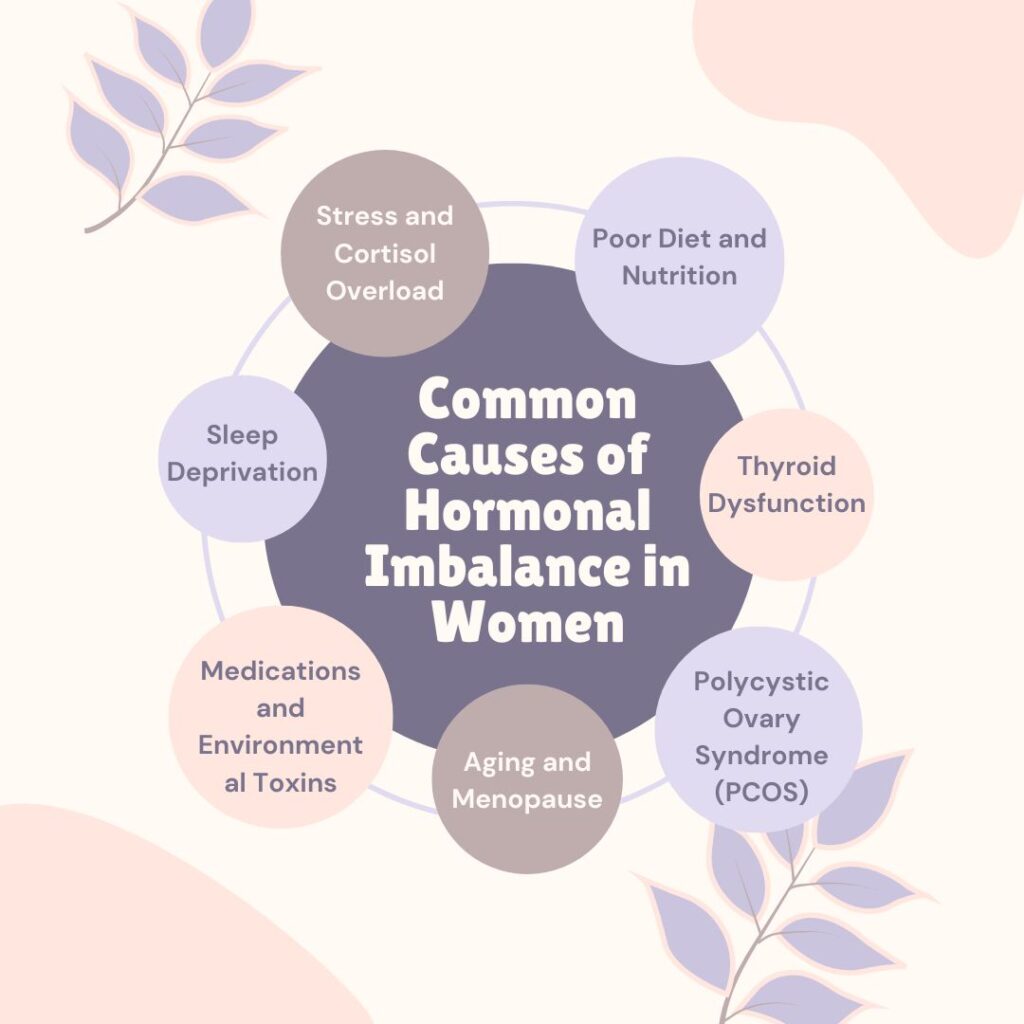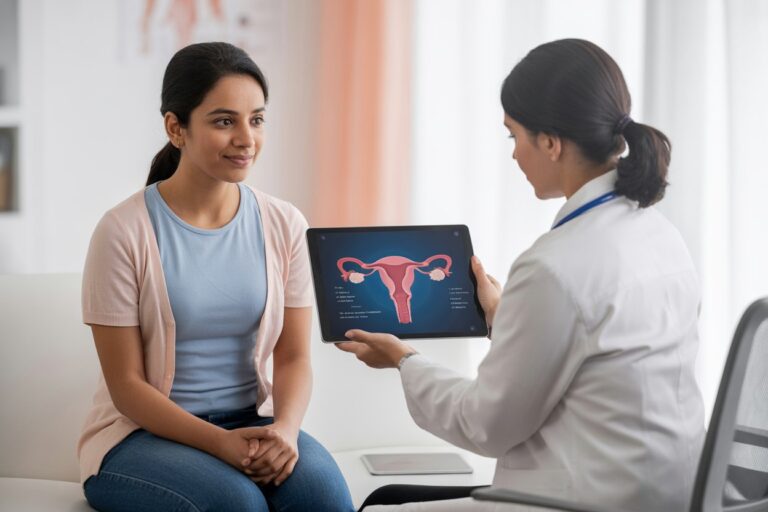Fertility is a deeply personal journey, and for many couples, it comes with both hope and challenges. While modern medicine offers treatments and interventions, many women prefer starting with natural methods before moving toward medical options. If you’ve been wondering how to improve fertility in women without rushing into procedures, the encouraging news is that lifestyle changes, food choices, and mindful practices can make a powerful difference.
Your body is designed to nurture life, and by supporting it with the right habits, you can increase your chances of conceiving while also improving overall health. Let’s look at the top five natural ways to boost fertility in women, backed by science and holistic wellness principles.

1. Nourish Your Body with a Balanced and Fertility-Friendly Diet
Food is more than just fuel—it directly affects your hormones, egg health, and reproductive system. A well-balanced diet can regulate ovulation, improve egg quality, and prepare your body for a healthy pregnancy.
Here’s how to improve fertility in women through diet:
- Folate-Rich Foods: Folate (vitamin B9) is essential for healthy ovulation and egg development. Add spinach, kale, broccoli, fenugreek, lentils, and chickpeas to your meals.
- Healthy Fats: Omega-3s and monounsaturated fats help balance hormones and support egg quality. Great sources include avocados, nuts, seeds, olive oil, and fatty fish like salmon.
- Lean Proteins: Opt for eggs, dairy, legumes, and plant-based proteins instead of too much red meat. Protein is the building block for reproductive hormones.
- Whole Grains: Brown rice, quinoa, oats, and whole wheat keep insulin levels stable, which is important for regulating cycles.
- Antioxidant-Rich Fruits and Vegetables: Berries, papaya, oranges, and carrots protect eggs from oxidative stress, which can harm fertility.
On the flip side, cut down on highly processed foods, refined sugars, and excessive caffeine. Even small, consistent improvements in your daily meals can create a positive impact on your fertility journey.
2. Reduce Stress and Support Your Emotional Wellbeing
Stress is more than just a mental burden—it directly influences fertility. High stress can disrupt hormonal balance, delay ovulation, and even affect sperm quality in men. If you’re trying to conceive, managing stress is just as important as eating well.
Practical stress-relief techniques include:
- Mindfulness & Meditation: Just 10–15 minutes of deep breathing or guided meditation can calm your mind and reduce cortisol (the stress hormone).
- Yoga & Gentle Movement: Certain yoga poses enhance blood circulation to reproductive organs and promote relaxation. Skip over-strenuous workouts that may hinder fertility.
- Journaling: Writing your thoughts, feelings, or gratitude helps release mental tension.
- Counseling or Support Groups: Sometimes sharing your worries with a professional or with women who are on the same journey brings emotional relief.
Stress is unavoidable in today’s world, but finding healthy coping mechanisms can help your body create a more balanced environment for conception.
3. Maintain a Healthy Weight
One of the most practical answers to how to improve fertility in women is maintaining a healthy body weight. Both being underweight and overweight can affect ovulation and hormonal health.
Tips for weight and fertility balance:
- Aim for a Healthy BMI: Women with a BMI between 18.5 and 24.9 generally have better fertility outcomes.
- Choose a Nutrient-Dense Diet: Focus on whole foods rather than extreme calorie restriction.
- Stay Active: Walk, swim, or practice yoga regularly to maintain a healthy weight without stressing the body.
- Avoid Crash Diets: Sudden or extreme dieting can disturb your menstrual cycle and delay ovulation.
Even a modest weight adjustment—losing 5–10% if overweight—can dramatically improve your fertility by restoring ovulation.
4. Support Your Hormones Naturally
Hormonal health lies at the core of fertility. Conditions like PCOS, thyroid issues, and irregular cycles often cause difficulties in conceiving. Thankfully, there are natural ways to bring your hormones back into balance.
Ways to naturally support hormonal health:
- Herbal Support: Herbs like ashwagandha, maca root, chasteberry (Vitex), and cinnamon (for PCOS) are known to help with hormone regulation. Always consult your doctor before taking supplements.
- Get Enough Sleep: Deep, restful sleep supports hormone release and reproductive health. Target 7–8 hours every night.
- Avoid Toxins: Chemicals in plastics, pesticides, and even some beauty products can disrupt hormones. Choose natural, chemical-free alternatives where possible.
- Regular Health Check-Ups: Keeping an eye on thyroid function, insulin levels, and reproductive hormones ensures early detection of issues.
Balanced hormones increase the chances of regular ovulation, improving both fertility and overall wellness.
5. Track Your Cycle and Know Your Fertile Window
Timing is everything when it comes to conception. Understanding your menstrual cycle and knowing your fertile days is a simple yet powerful way to improve fertility naturally.
Methods to track your fertility window include:
- Basal Body Temperature (BBT): Chart your morning body temperature. A slight rise usually means ovulation has occurred.
- Cervical Mucus Monitoring: Fertile mucus is stretchy, clear, and egg-white-like. It signals your peak fertility days.
- Ovulation Predictor Kits: These detect the LH surge that happens before ovulation, helping you time intercourse better.
- HugMumma Period Calculator: An easy way for women to predict fertile days, track cycles, and notice irregularities.
By aligning intimacy with your fertile window, you can maximize the chances of natural conception.
Final Thoughts
When it comes to how to improve fertility in women, the key is creating a healthy balance in your body and mind. Eating nutrient-rich foods, managing stress, maintaining a healthy weight, supporting hormonal health, and understanding your cycle are simple yet effective steps that can make a real difference.
Remember, fertility is a shared journey—both partners need to embrace healthy lifestyle changes. And while natural methods are powerful, it’s always wise to seek medical guidance if conception doesn’t happen after a year of trying (or six months if you’re over 35).
Most importantly, be kind to yourself. The path to motherhood is not the same for everyone, but every positive change you make today is an investment in your future health, happiness, and fertility.











